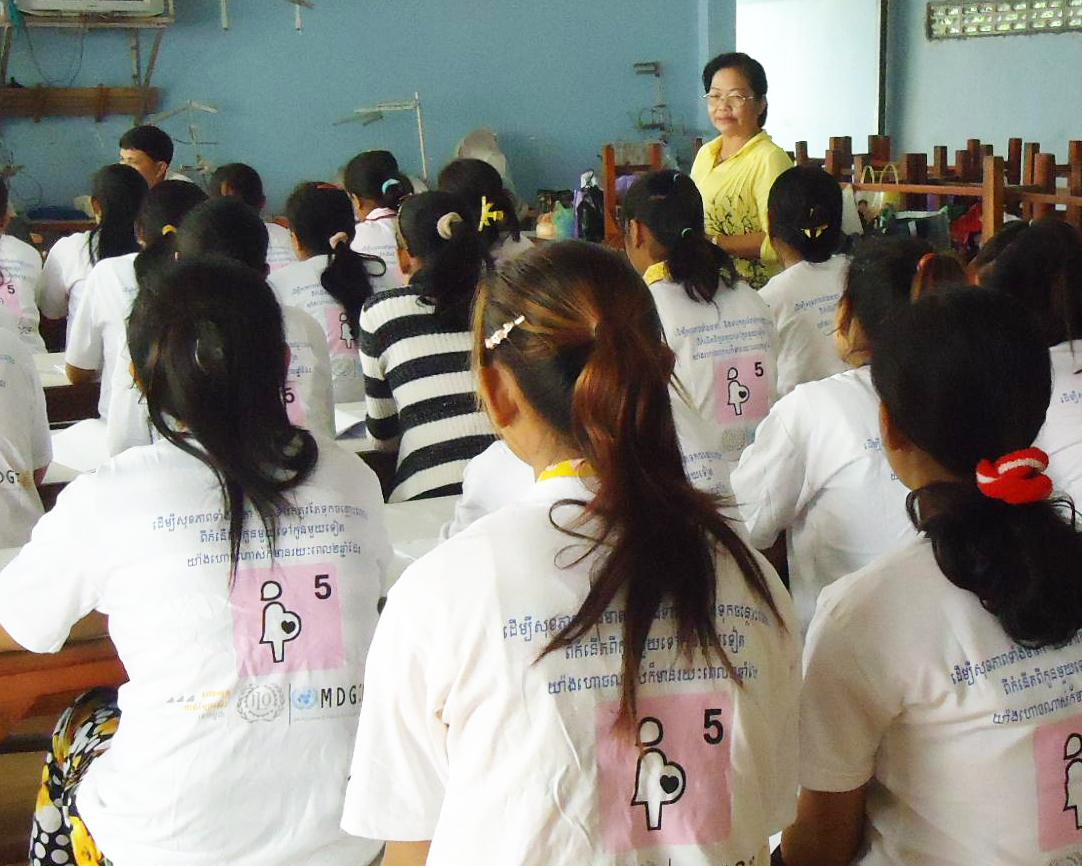

Cambodia: Using the airwaves to fight malnutrition

The factory workers in Kampong Speu and Svay Rieng in southern Cambodia have all heard the story of Sophary.
Sophary, a teenager growing up in a strict family, ran way to the capital and landed a job in a factory, only to fall in love with a man who abandoned her when she became pregnant. Fortunately, Sophary’s friend Phina convinced her to seek prenatal care at a health center, where she met a sympathetic woman doctor who persuaded Sophary to keep her baby and taught her proper nutrition and hygiene.
Sophary is the star of a radio spot produced with support from the MDG-Fund to improve maternal and child health and increase food security and nutrition in one of the poorest countries in the world.
44 % of Cambodian children under 5 are stunted, 29 % are moderately to severely underweight, and a third of the population lives below the poverty line. Nearly 60% of pregnant women are anemic. The Joint UN Programme on Children, Food Security and Nutrition targets pregnant and lactating mothers and children aged 0-24 months.
Radio dramas teach good practices
The radio spots have so far been heard by more than 14,000 workers in the garment and shoe industries, where the workforce is 90% women. The episodes, six dramas and magazines, are played over the factories’ sounds systems and cover topics such as breastfeeding, complementary feeding, food, nutrition, health care and hygiene.
The project hopes to break the cycle of under- and malnutrition, which is closely linked to poverty and stunted physical and intellectual development, and whose consequences can persist for generations.
The Joint Programme is also providing micronutrient and vitamin supplements to women and children, and has produced packages to manage acute malnutrition in five health centers in Kampong Speu province. It has established a food security and nutrition monitoring system, and assisted in the development of several national maternal and child nutrition policies.
Improving nutrition and food security
The Joint Programme for Children, Food Security and Nutrition is a collaboration between the Cambodian government and six UN agencies – the WFP, WHO, FAO, UNICEF, UNESCO and ILO.
Its aim is to improve the nutritional status of children 0-24 months and pregnant and lactating women, to strengthen and develop Cambodia’s food policies and to help create a food and nutrition monitoring system.
So far, some 26,000 children have received micronutrient supplements, 123,000 have received Vitamin A, 110,000 have been treated for deworming, and 90,000 pregnant, post-partum or reproductive age women have received Iron Folic Acid supplements. Among other interventions, more than 3200 health workers have been trained in the use of micronutrients or in counseling for breast-feeding and complementary feeding.
Click to read other success stories from the MDG-F's work to fight poverty and improve livelihoods around the world.